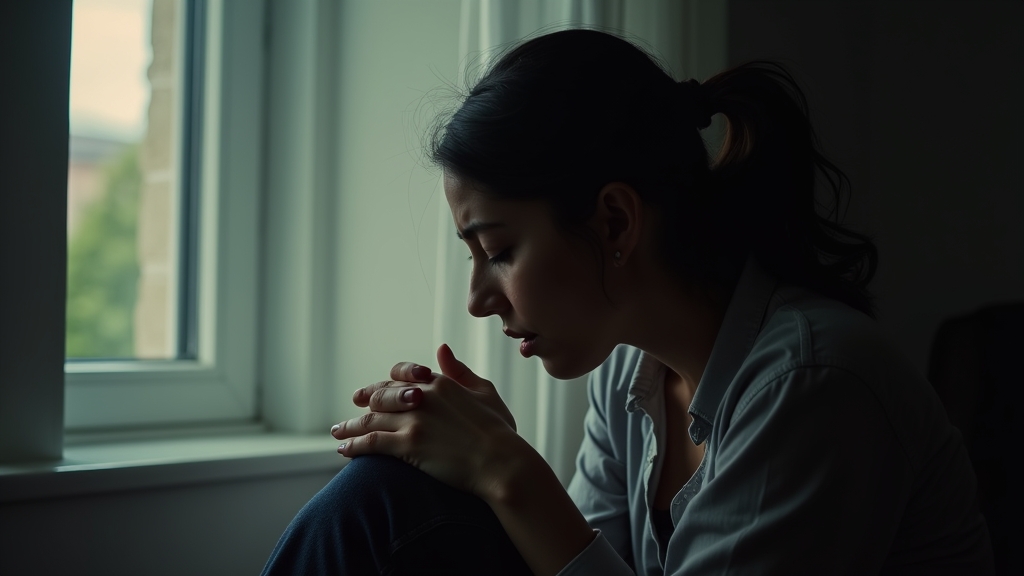One of the most misunderstood forms of grief is miscarriage grief. After a miscarriage, some women feel that their grief is disproportionate to their loss, especially an early pregnancy loss. They may feel confused that they can’t just get over it and move on.
This article will explore the emotional distress felt by someone who has experienced miscarriage and provides guidance on dealing with the grieving process.
Understanding the Emotional Impact

Everyone will experience losing a pregnancy differently. Most women feel sad, and some experience depression. It’s normal to experience a roller coaster of different feelings. If you were many weeks into the pregnancy and have already started feeling the baby move, it can be a particularly difficult time to get through.
But even an early loss can cause deep emotional pain. Many women become attached to their babies after receiving a positive pregnancy test. Feeling this way could make an early miscarriage a profound loss.
Regardless of how far the pregnancy progressed or how you feel, the first step to dealing with your loss is to recognize the most common symptoms of miscarriage grief, for example:
- Feelings of sadness
- Depressed feelings
- Anxiety
- Fatigue and exhaustion
- Loss of appetite
- Trouble sleeping
- Emotions like anger, guilt, and shock
There are also other typical experiences associated with grieving about a miscarriage, including:
Self-Blame
It’s common to blame yourself for losing a baby. Many women feel it’s their fault they couldn’t maintain a healthy pregnancy because they did something wrong or didn’t care for themselves. It’s not your fault; most miscarriages happen because of genetic abnormalities.
Experiencing the Stages of Grief
Just like with any other loss, you will experience the stages of grief. Some women will arrive at the “acceptance” stage earlier, while other women may feel emotions like anger for longer. There is no right or wrong way to grieve.
Fluctuating Hormone Levels
Changing hormones contribute to the emotional fluctuations you’ll experience after a miscarriage. It usually takes a few weeks for your hormones to stabilize, and you should experience a normal menstrual cycle again around four to six weeks after the miscarriage.
Women’s health is an integral part of the healing journey, so it’s crucial to follow professional medical advice after a miscarriage.
Being Triggered
After a miscarriage, it may be difficult to see other women with their babies or hear news about a friend’s new pregnancy. Significant days like your due date and mother’s day could also trigger sad emotions in you. It’s okay to distance yourself from anything that you may find challenging.
Grieving Differently From Your Partner

Every person is different; even close families experience grief in different ways. Your partner may not experience the miscarriage the same way you are or be so wrapped up in giving you the emotional support that they are not dealing with their emotions. It’s essential to communicate how you feel and to ask them to share their own feelings.
Some women will have only one or two symptoms, while others will experience several or all of them. These symptoms could last days, weeks, or longer.
Coping With Miscarriage Grief
Every person’s experience of miscarriage grief is different, and so is their coping process. Here are a few guidelines that may help you cope with your loss.
#1. Understand That What You Feel is Normal
Losing a pregnancy is different for everyone, so whatever you feel is entirely normal. Don’t allow other people’s reactions to make you think that you are grieving in the wrong way.
If you haven’t officially announced your pregnancy, the miscarriage may come as a shock to your loved ones, or you may keep the process private. Either way, what you feel is valid. Talk to your partner, a friend, a family member, or a professional if you need to.
#2. Allow Yourself to Feel
The intensity of the emotions you experience after a miscarriage may surprise you and make you feel uncomfortable. You may expect to feel sadness and experience unexpected emotions like anger, guilt, and emotional numbness.
Whatever you are feeling is essential. Pushing these deep feelings aside or denying them will only make it worse. The best way to deal with your feelings is to feel them.
#3. Memorialize Your Loss

Having a funeral helps those left behind to come to terms with the loss. With a miscarriage, this is not always possible, depending on how far along the pregnancy was. If you can find a way to memorialize your pregnancy and loss, even if it’s not a funeral, it may help.
Some families would prefer to gather together to have a grieving ceremony. Others would instead do something in honor of the lost baby, like planting a tree or making a charitable donation.
#4. You Don’t Have to Grieve Alone
If you are having a tough time dealing with the emotions associated with your miscarriage, it may be time to find additional support. Here are some options:
Talk to Family Members or Friends
For many women, it’s enough to talk to their partner, family, or friends about the baby she’s lost. Others will need to receive support from other sources.
Consider Grief Therapy

If you experience lasting depression or debilitating anxiety, or if your feelings are making it difficult to function in everyday life, it may be time to talk to your healthcare provider. They will recommend a therapist or counselor to help you navigate your miscarriage grief.
Try Support Groups
One of the best ways to process grief is to join a support group. For women who have experienced a miscarriage, this is particularly true—experiencing the loss of a baby before the birth is a specific experience, and it will help bond with others who have also experienced it.
If you don’t have a miscarriage support group in your area, consider joining one of the many support groups online.
#5. Tell Others About Your Loss
There is no right or wrong way to tell people about a miscarriage. Everyone will have their own feelings about the news, so you may want to do it in different ways, depending on the person you’re telling.
Tell the people close to you in person if you want emotional support and hands-on care like hugs. You’ll know who this is. If the conversation is too difficult for you to have in person, you can send an email message or note to other family members, friends, or colleagues.
Explain what happened and be direct about what type of support you need. Another approach is to ask someone you trust to communicate the news to the rest of the family or your workplace.
Telling Children
If you have children, telling them may be hard for various reasons. Depending on the child’s age, they may not understand what happened to the baby. Communicate as simply and honestly as possible that the baby could not keep growing.
If you say that you lost the baby or that the baby is sleeping, it may be confusing for a small child. Be aware that the child may also grieve and not know how to cope with their feelings. Watch out for behavior changes and encourage communication and questions. Consider getting a children’s book about death and loss.
Dealing With Different Reactions
You can expect various responses from the people you tell. Some people will know exactly what to say and do, while others won’t. Here are some typical responses you may not expect and how to deal with them:
- No response – It may be difficult to believe, but some people will have no idea how to respond to miscarriage grief. The shock of hearing that you are no longer pregnant may be too much for them to handle at the time, and they simply don’t respond. Remember that it doesn’t mean they don’t care about you; it’s just their initial response.
- Clichéd condolences – Hearing things like, “Your next pregnancy will be better,” or, “I know how you feel,” could make you feel worse. Most people don’t mean to be insensitive; they just don’t understand that you don’t want to think of future pregnancies at that time and that they don’t really know how you feel.
- Downplaying your feelings – Everyone grieves differently, and not everyone understands how a miscarriage can affect you. If a friend or family member is downplaying your feelings, try to be honest. If they still don’t understand, ask for support from people that do.
When to Try Again
Many women will want to get pregnant again as soon as possible after an early pregnancy loss. It’s possible to have successful pregnancies after a miscarriage.
If your treatment is complete and you have a clean bill of health, you can try to fall pregnant again only after one normal menstrual cycle following a miscarriage. Talk to your partner and check with your doctor before trying to fall pregnant again.
It’s also important to remember that even if your body can deal with another pregnancy soon after, you may still need to heal emotionally. A healthy pregnancy is about more than just a healthy body.
The Grieving Process is Unique
Miscarriage grief is different for everyone, and you may fluctuate between a range of different feelings. You may wake up feeling a little better one day, but you’re deeply sad again by the afternoon. Months or years could pass, and you could be reminded of the pregnancy and transported back to your early feelings of grief.
Losing a pregnancy could impact you for the rest of your life. But, in time, the emotions will become less intense, and you will be able to return to a normal daily life. Until it is more manageable, it’s essential to do all the things you need to work through the emotions. It is up to you whether this is talking to a therapist or finding support in other ways. The critical thing is that you deal with the grief of losing a baby.
